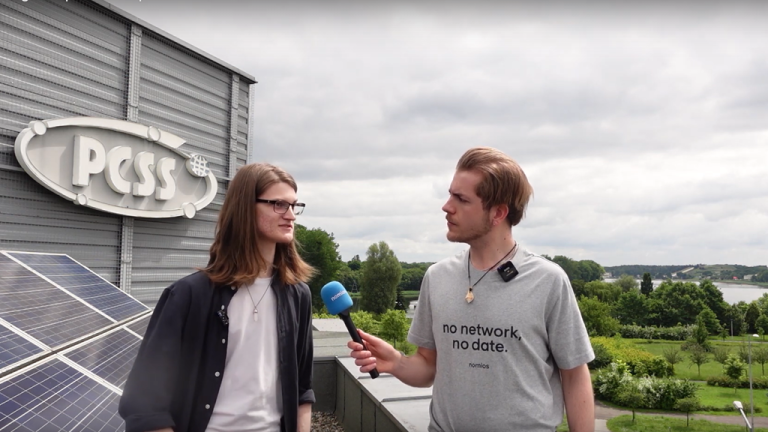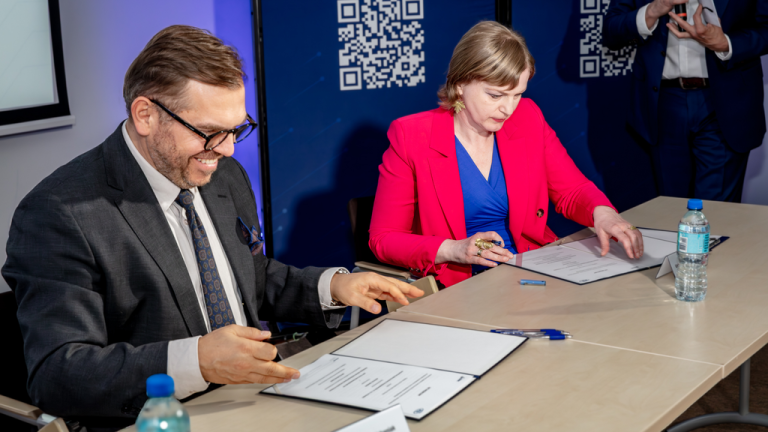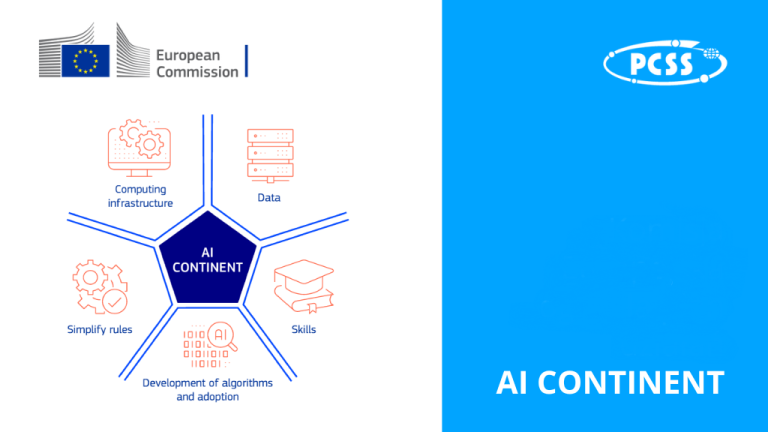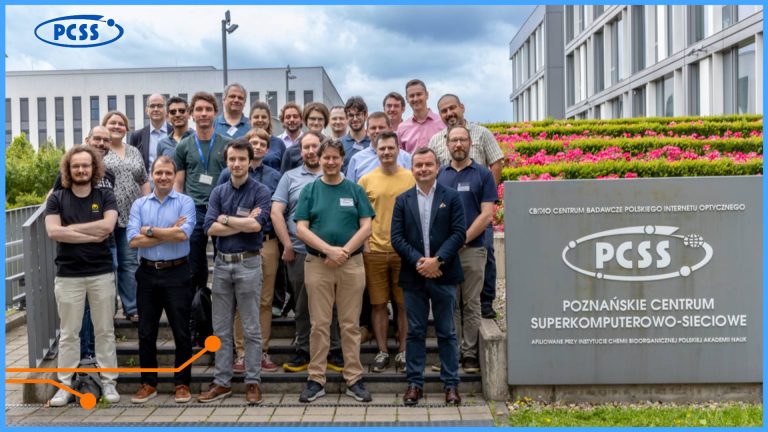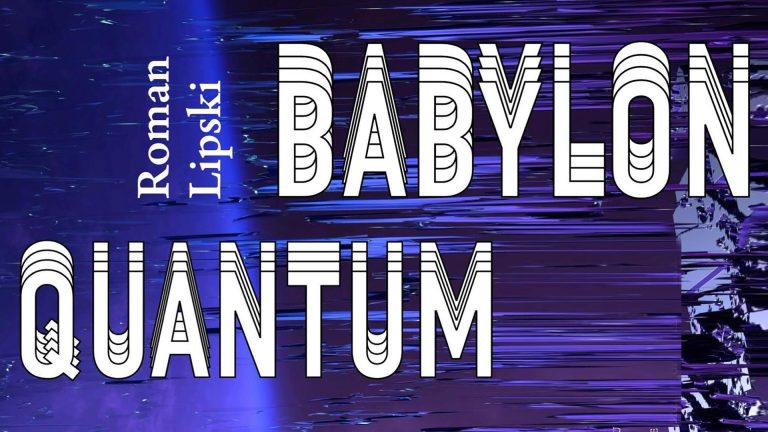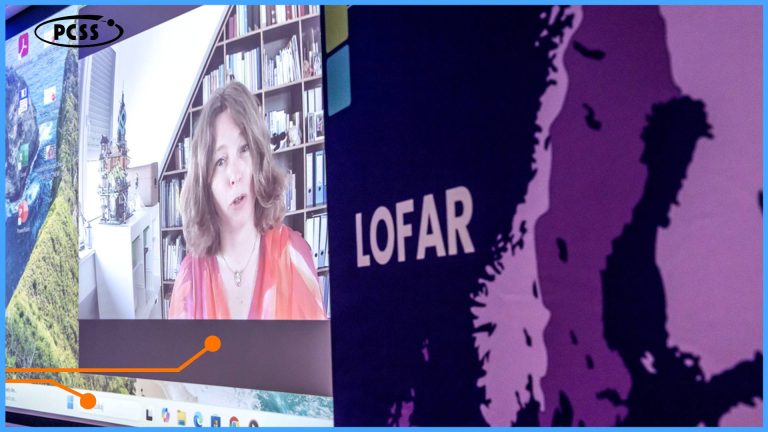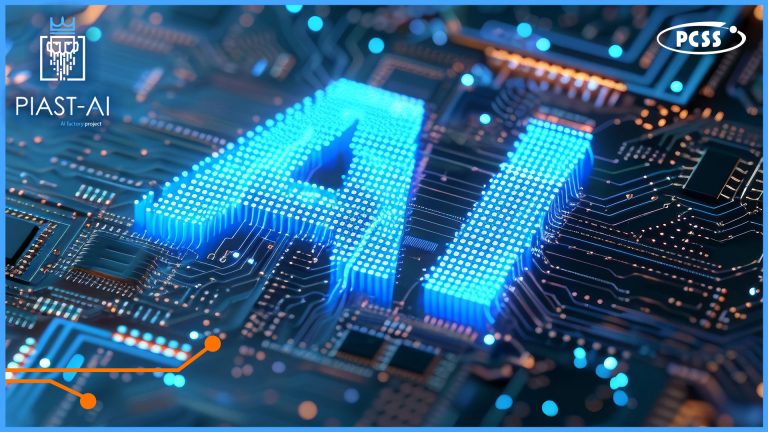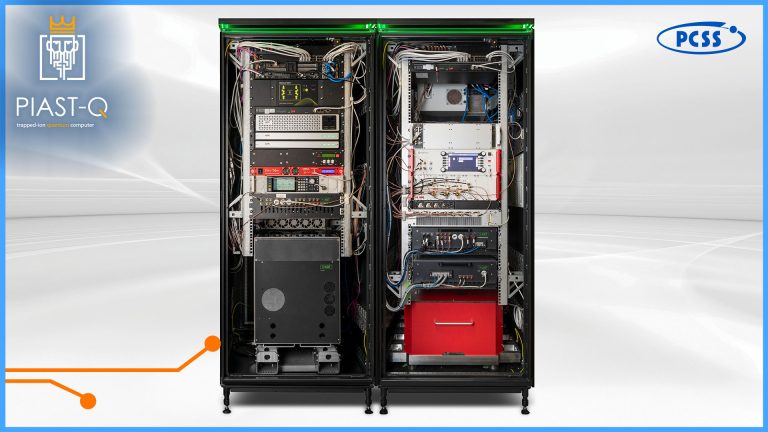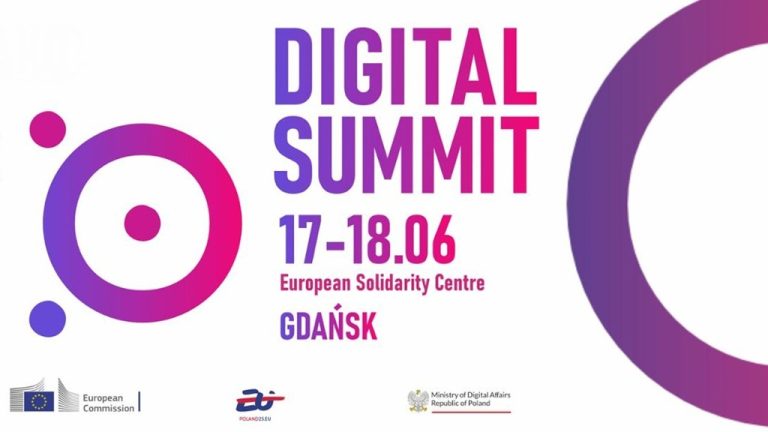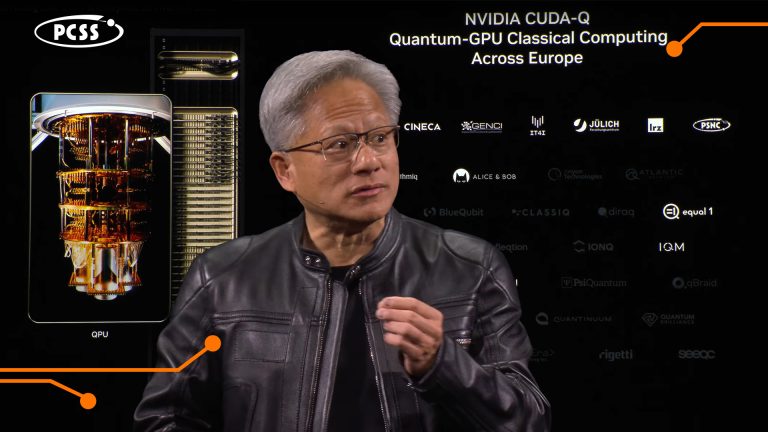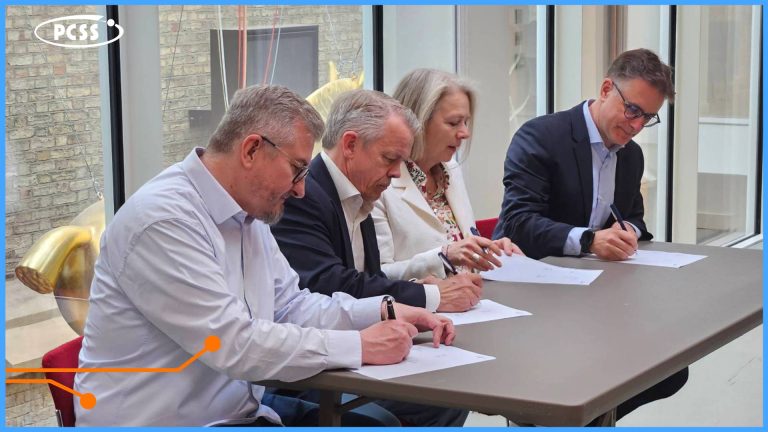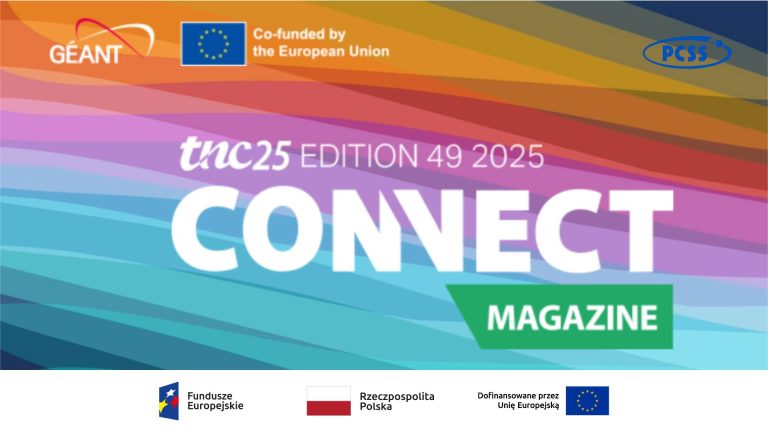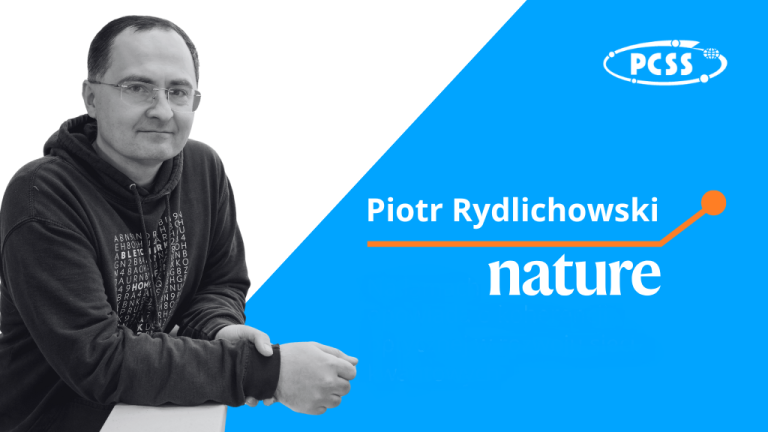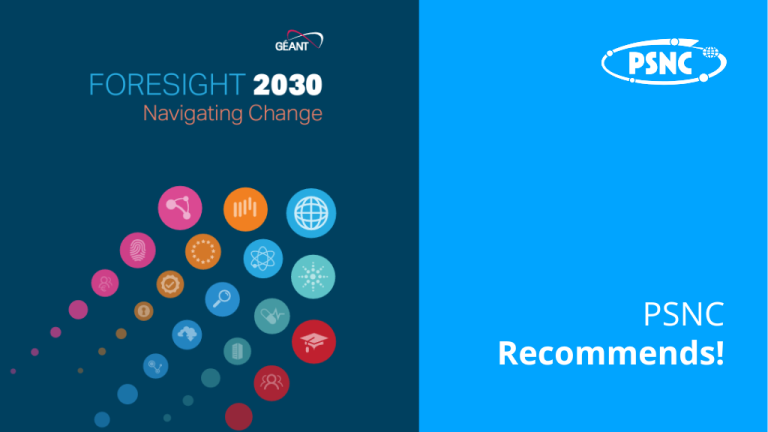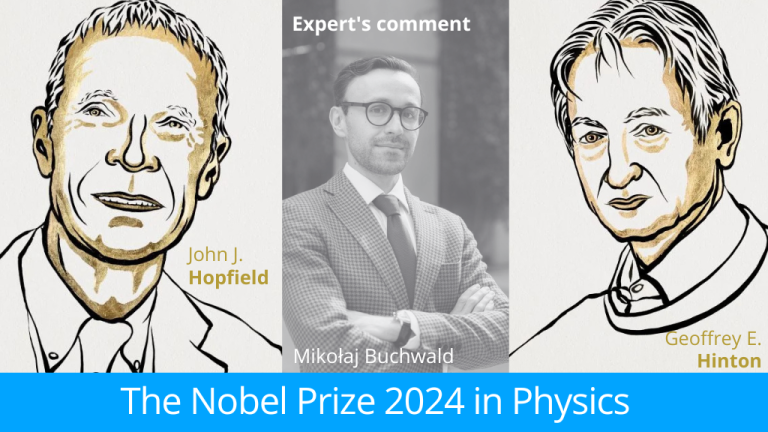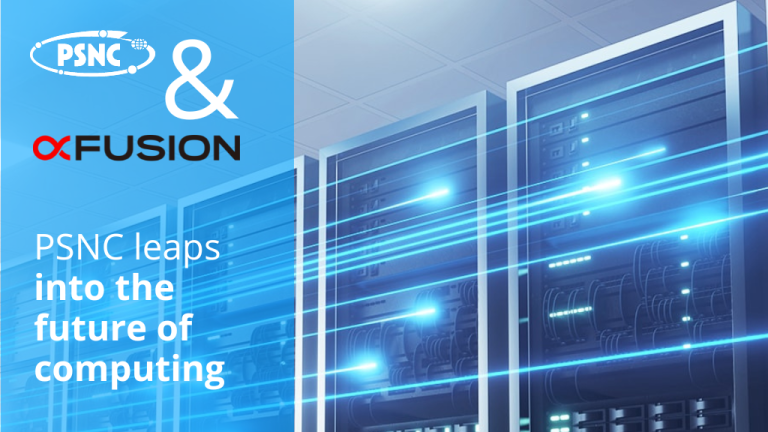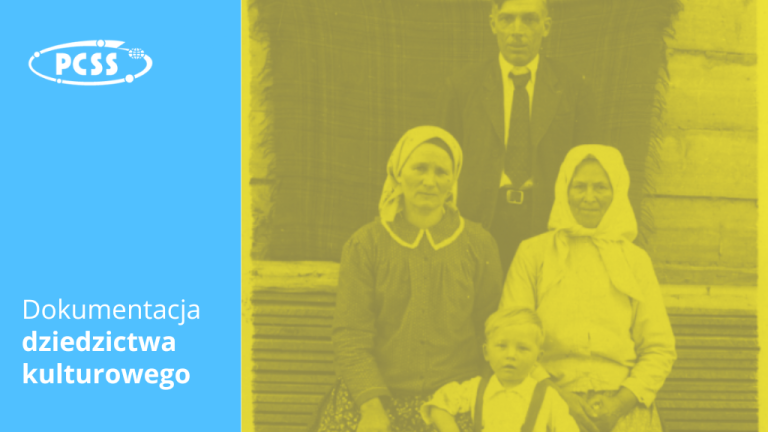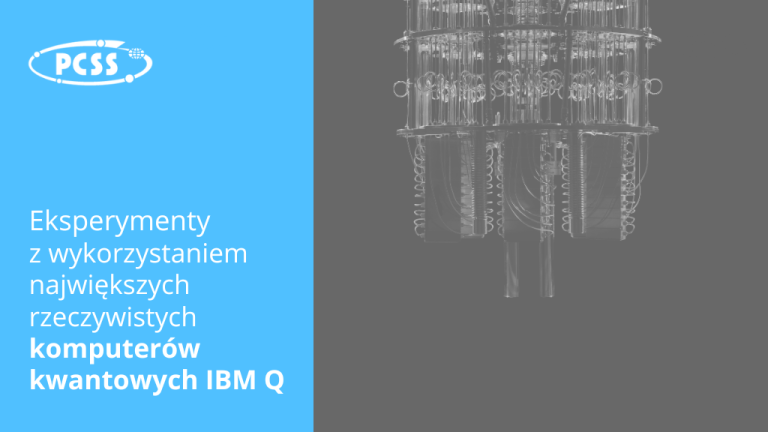Ai_EnergINN is an industry conference dedicated to the use of artificial intelligence (AI) in the energy sector, to which we invite you together with Enea Operator on 23-24 April 2024 at the Poznań International Fair. The event will feature presentations divided into several thematic blocks, with the participation of representatives of the Poznań Supercomputing and Networking Center.
On the first day of the conference, lectures will be held from 11.00 to 15.00. There will be three thematic blocks: AI, Distribution Network and Thermal Power Engineering. The Artificial Intelligence section will be presented by PSNC specialists:
- 11:15-11:30: Piotr Wyrwiński (Department of Energy Efficient ICT Technologies) will give a presentation entitled A Brief Guide to AI. Fundamentals, applications and limitations of artificial intelligence methods.
In today’s dynamic technological landscape, Artificial Intelligence (AI) is becoming an integral part of our lives, from simple applications in everyday devices to advanced systems supporting activities in business or medicine. However, in order to understand both the potential and the limitations of AI, it is useful to learn about its fundamentals, its various applications, and the challenges it poses. This talk will provide a brief guide to artificial intelligence, focusing on its basic mechanisms, various applications and identifying methodological limitations. Practical applications of AI in different areas of life, ranging from business to science, health and technology, will be discussed. In addition, potential challenges and barriers that may arise in the implementation of AI methods will be presented.
- 11:30-11:45 Tomasz Matysiak (Department of Energy-Saving ICT Technologies) will present the topic Application of Advanced Data Analytics, Big Data and Artificial Intelligence in the Energy Sector.
The aim of the presentation is to present the possibilities of using artificial intelligence technology in the energy sector. This is a very specific area, seemingly ideal from the point of view of an AI specialist, characterised by large amounts of structured data, relative constancy of structure, centralisation and predictability. On the other hand, it is an extremely critical industry where there is no room for free experimentation on a living organism. Every decision must be explained. Data protection and regulation impose an obligation to handle information appropriately. The development of renewable energy sources has made the system much more dynamic. After all, our daily lives require an uninterrupted supply of electricity. These are challenges that require new tools, and AI technology can provide them. The talk will present examples of such tools. The first will be about modelling the electricity grid. The second will be a proposal to optimise the process of using internal knowledge in everyday life.
- 11:45-12:00 Bogdan Ludwiczak (Head of the Advanced Visualisation and Interaction Department) will give a presentation on the use of virtual and augmented reality in the energy industry.
Is the dynamic development of virtual reality technology only related to fun and entertainment? Or is it just a fad and, after a brief period of enthusiasm, the technology will be consigned to oblivion, as happened once before in the 1990s? The activity in this field by technology giants such as Meta and Apple seems to indicate that this will not be the case this time, that this time it is something more. And indeed, despite the challenges and problems, it is now not only virtual reality, but also augmented or mixed reality that is beginning to permeate our everyday lives and professional applications. In this talk, we will focus on an overview of the latest mixed reality developments, confront the challenges and look at the potential of this technology in professional applications.
In the part devoted to the Distribution Network, two presentations by representatives of the PSNC are scheduled:
- 12:45-13:00 Franciszek Sidorski (Department of Energy Efficient ICT Technologies) will try to answer the question: How and where to invest in order to increase the capacity of the distribution network? About optimising the allocation of investment funds in the distribution network?
The distribution network was designed to ensure the transmission of energy from large fossil-fuel-fired generating units to end consumers. The current growth in RES installations and energy storage facilities, both prosumer and directly connected to the distribution network, increasingly leads to energy being transmitted to the high-voltage transmission network. This makes it necessary to allocate significant investments to modernise and expand the distribution network in order to increase its security and capacity. Seeking an answer to the question – how and where to invest in order to increase the capacity of the distribution network, the Poznań Supercomputing and Networking Centre, in cooperation with OSD Enea Operator, developed an innovative algorithm to optimise the allocation of investment funds. Utilizing advanced IT tools tailored for managing extensive data sets, a solution was developed to support and optimize this process.”
- 13:15-13:30 Konrad Kuczyński (ICT Energy Efficiency Department) will discuss the example of a wind farm at the Kąkolewo airport in his presentation Will energy storage reduce the load on the distribution network?
The presentation will showcase the newly established Renewable Energy Source (RES) installation at the airport in Kąkolewo. Owned by PSNC, the installation comprises:
– A photovoltaic (PV) farm with a capacity of 0.989 MWp,
– An energy storage facility with a capacity of 90 kW and 532 kWp,
– Off-takes in the form of a hangar.
Given the system’s research and development orientation, the presentation will delve into potential operational scenarios, the initiative to expand energy consumers with a datacenter, as well as the algorithms and applications slated for development (e.g., managing energy generation and consumption in response to signals from the grid or price fluctuations in energy markets).
On the second day of the conference, with lectures scheduled until 1:30 p.m., topics will encompass “Solutions for the Future” and “Our Present.”
In block one the speakers will be:
- 11:15-11:30 Piotr Szymaniak (PSNC Aerospace Lab team) will present the topic The Future of Passporting and Inspection – Autonomous Drone Systems.
The presentation will discuss the currently popularised way of using drones, which assumes a high level of human involvement in the process, both in the organisational aspects of the mission and in the technical aspects related to piloting the drone and processing the data acquired by the drone. Additionally, it will explore PSNC’s potential collaboration with a major infrastructure operator to develop a highly automated system, where human supervision from a remote management center will be contrasted.
- 11:30-11:45 Wojciech Szeliga (Energy Efficient ICT Technologies Department) will reflect on What does a weather forecast have to do with an electrician?
Multi-scale weather simulations and the derived information play a pivotal role for power grid operators. Furnishing such data necessitates substantial computing power and the appropriate methodology. Leveraging substantial computing resources and multi-domain expertise at PSNC, we are presently advancing services grounded in weather simulations and AI. These endeavors will enable us to significantly enhance accuracy in estimating, for instance, the energy output of a wind farm on any given day or identifying locations where an impending storm might jeopardize the existing network. Anyone interested in the topic is warmly invited to attend the conference.
The detailed conference programme and registration form for the event are available at: https://www.energinn.info.
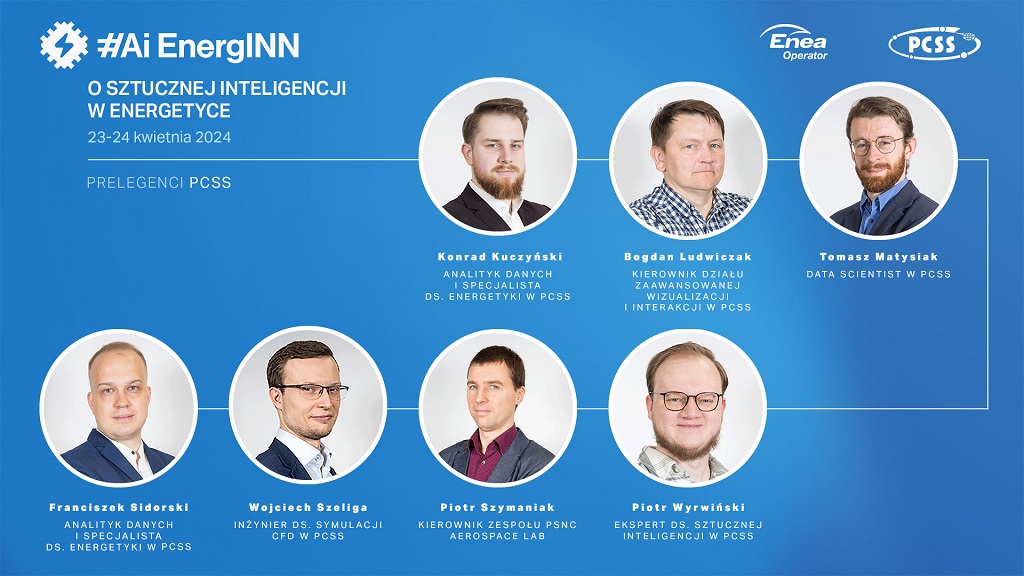


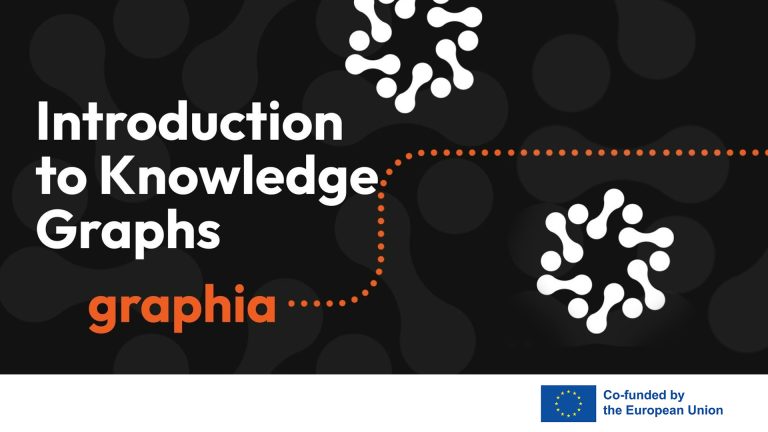
![The image displays the word "LUMEN" in a stylized, outlined font, with different letters connected by lines and arrows to various academic disciplines. The letters "L" and "U" on the left are linked to "Mathematics [Maths]" and "Social Sciences and Humanities [SSH]," while the letters "M," "E," and "N" on the right are associated with "Earth System Science [ESS]" and "Molecular Dynamics [MD]." The overall design suggests an interconnectedness of these fields, potentially illustrating the interdisciplinary nature of something represented by "LUMEN".](https://www.psnc.pl/files/2025/05/lumen2_EN-768x432.jpg)

